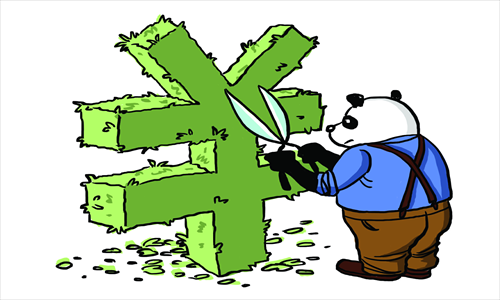Web of interests leaves path to reform cluttered with obstacles

There is a common argument in China that political reform has lagged behind societal change.
I think the reasons for slow reform are threefold. It's very difficult and complex because it's so closely linked to economic and financial issues. And there are some who have done quite well out of the current structure, and have no personal incentive to push for further change. Finally, there is a concern that opening up the political process to more interests might lead to the weakening of Party power.
Actually, if handled correctly, I think the opposite might be true. A more open and transparent party might be seen to be more legitimate. But there does seem to be reluctance in some quarters to allow for interests that might be critical of the way things are done.
Recently I was re-reading the CPC Central Committee communiqué from 2004 which reported on the Party's ruling capacity and called for a plan for comprehensive political system reform by 2020. It's not clear to me how far China is along that road in 2012.
There is a need to find ways of coping with diversity. This means not only finding ways of incorporating the increasingly numerous and diverse sets of interests within China into account in the policymaking process, but also articulating and explaining how and why decisions have been made.
This requires new mechanisms to gather and channel the articulation of interest, and a more transparent and predictable process as well.
People everywhere want political systems that not just listen to their voices, but are also fair. It seems pretty clear to me that many people in China think that local leaders are out to serve themselves, not the people. Building trust between people and local governments is clearly a very important task.
A key cause of distrust is the way that local governments control land use rights. Many of the bigger cases of disturbances we have seen have been at least partially caused by land issues. This isn't just about officials acting to benefit themselves. In recent years, selling land use rights has become a major source of local government income.
Indeed, the single most important source of those revenues is directly under local government control, as opposed to shared revenues and central transfers. Added to this is concern about inequality and unfair opportunities.
This suggests that political reform is inextricably linked to the need for further economic reform, and in particular, the way in which local governments are funded, and the relationship between local governments and important local economic actors.
The relationship between local governments and control of land is a key issue that needs to be dealt with. Quite apart from anything else, it doesn't make long-term economic sense for this to be such an important source of local finance.
This is in turn linked to the broader question of how local governments are funded in general, which shows how complex things become when you start to unravel them.
Of course, proper supervision of local governments to ensure they act fairly wouldn't do any harm either.
China will soon see a change of leadership. It's unlikely that there will be a radical change in policy overnight. But new leaders will have their own ideas and preferences, and I'm sure we will hear the language of change. It might be that the fact that they are new will give them some momentum.
However, the new leadership of China will still have to deal with balancing the interests and demands of different groups from within the existing configuration of power.
What happens in the next few years largely depends on what happens with the economy over the next year or so. The concern with maintaining social stability means that dealing with short-term challenges in the economy often trumps longer-term considerations, albeit for good reasons. We saw this in the response to the global financial crisis in 2008-09.
It's entirely possible that the new leadership will, like their predecessors, look at the economy first. The key for me is whether this means looking at fundamental structural economic issues, like the sort I have outlined above that impact on political reform, or just dealing with immediate short-term issues instead.
The article was compiled by Global Times reporter Yu Jincui based on an interview with Shaun Breslin, director of Centre for the Study of Globalisation and Regionalisation, Department of Politics and International Studies at the University of Warwick. yujincui@globaltimes.com.cn